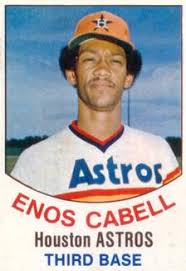My puzzle ran in today's NYT. It's a pretty good one I think. As (bad) luck would have it, a puzzle with a very similar theme ran in the WSJ fairly recently, but I like mine better because it has ANOTHER DIMENSION. (That's the third time I used that joke in writing, by the way.)
I don't have too much more to say about my puzzle (for now, sometimes I post addenda after reading reviews and comments). Instead I'd like to give some thoughts on a general subject: Crosswordese. I read the major crossword blogs pretty much daily, and I often get annoyed when people miscategorize all bad fill as Crosswordese. To me, Crosswordese has a specific definition. To wit...
Crosswordese is a concept familiar to the most casual crossword puzzle solvers, even if they don't call it that. When I first started doing crosswords, about twenty years ago, I quickly built up a mental list of words and abbreviations I had never heard of and would never use, but needed to know in order to be a good solver. Anything to do with wings was ALAE or ALAR; anything with molding in the clue was probably OGEE; the Alaskan island was ATTU; and a direction at sea was ALEE. I probably could have lived my entire life just fine without knowing that OLEO was an early term for margarine, popularize during WWII rationing -- although I would have totally missed the joke on The Simpons when Grandpa gets an artillery shell full of oleo in his Krusty Meal.
Today, Crosswordese is a very common term in the solver community. It even has its own Wikipedia page. The problem, however, is that nobody seems to know exactly what it means, and as result the term Crosswordese is, in my opinion, often applied inappropriately. It has come to be used to describe any overused, boring entry. It's essentially synonymous with "bad fill." But this misses a crucial component of what I consider Crosswordese: its near exclusivity to crossword puzzles.
Here's my definition of Crosswordese.
Frequent crossword puzzle entries of which a significant majority of the solving population would be unfamiliar were it not for crossword puzzles.
Notice this makes Crosswordese different from bad fill. (Although there is significant overlap -- you could argue the former is a subset of the the latter.) As an example, consider the three E-names ENOS, ESAU, an ESME. According to the Wikipedia page, each of these is Crosswordese. However, according to my definition, ENOS is clearly not because (almost) everybody has heard the name ENOS outside of crosswords. If you're a baseball fan, you've likely heard of Hall of Famer Enos Slaughter (or Enos Cabell, if you're a baseball fanatic like me); if you watched The Dukes of Hazzard, you probably know Enos from that show (and you're probably bothered by the fact you loved a car with a Confederate flag painted on it); or you might know Enos from the bible or the space chimp. The point is, the name ENOS is well-known outside of Crossworld. The same cannot be said for ESAU or ESME -- a relatively minor character in the Bible and a titular name only big-time Salinger fans are likely to know.
Another type of Crosswordese are those entries with which solvers are familiar, but not in the form in which they appear in the grid. For example, AANDE and ONEA are crossword puzzle staples, even though they are always written as A&E and 1-A "in the wild." Other types of entries I put in this pile include variants nobody uses (AMEBA), plural abbreviations nobody uses in the plural form (STES), random partials (IN IS), random roman numerals you almost certainly would never see outside of crossword puzzles (MMCI), random affixes people never use by themselves (OON), and especially random plural affixes people never use by themselves (OSES). These types of entries represent my least favorite form of Crosswordese because they feel like extra cheating to me. I try to never use them in my puzzles.
A lot of foreign words and phrases are also Crosswordese, but certainly not all of them. HERR and FRAU are legit entries, in my book, but not NIE or EIS. There is only so much German your typical solver will know. There are a good number of proper nouns that also qualify as Crosswordese, though, I would argue, not some of the most common crossword names like OTT, ONO, and ENYA (but definitely ERLE, EERO, and ESAI, among other ).
So, to give a final, recapping example: OREO not Crosswordese, OREM Crosswordese, OREL I'm not sure about. Does the average solver remember "The Bulldog"?



3 comments:
I would think even a casual baseball fan would know Orel Hershiser, even if they weren't watching games in his heyday, since he's now a TV analyst. So I vote not crosswordese.
I would also argue that Esau is not a minor character in the Bible. Onan is a minor character; so is Methusaleh. Esau is a key player in one of the primary narratives in Genesis.
You might be right about ESAU (I had somebody else message me about him). If so, I will retract the example and replace it with ESAI Morales :)
Now there I agree with you!
Post a Comment